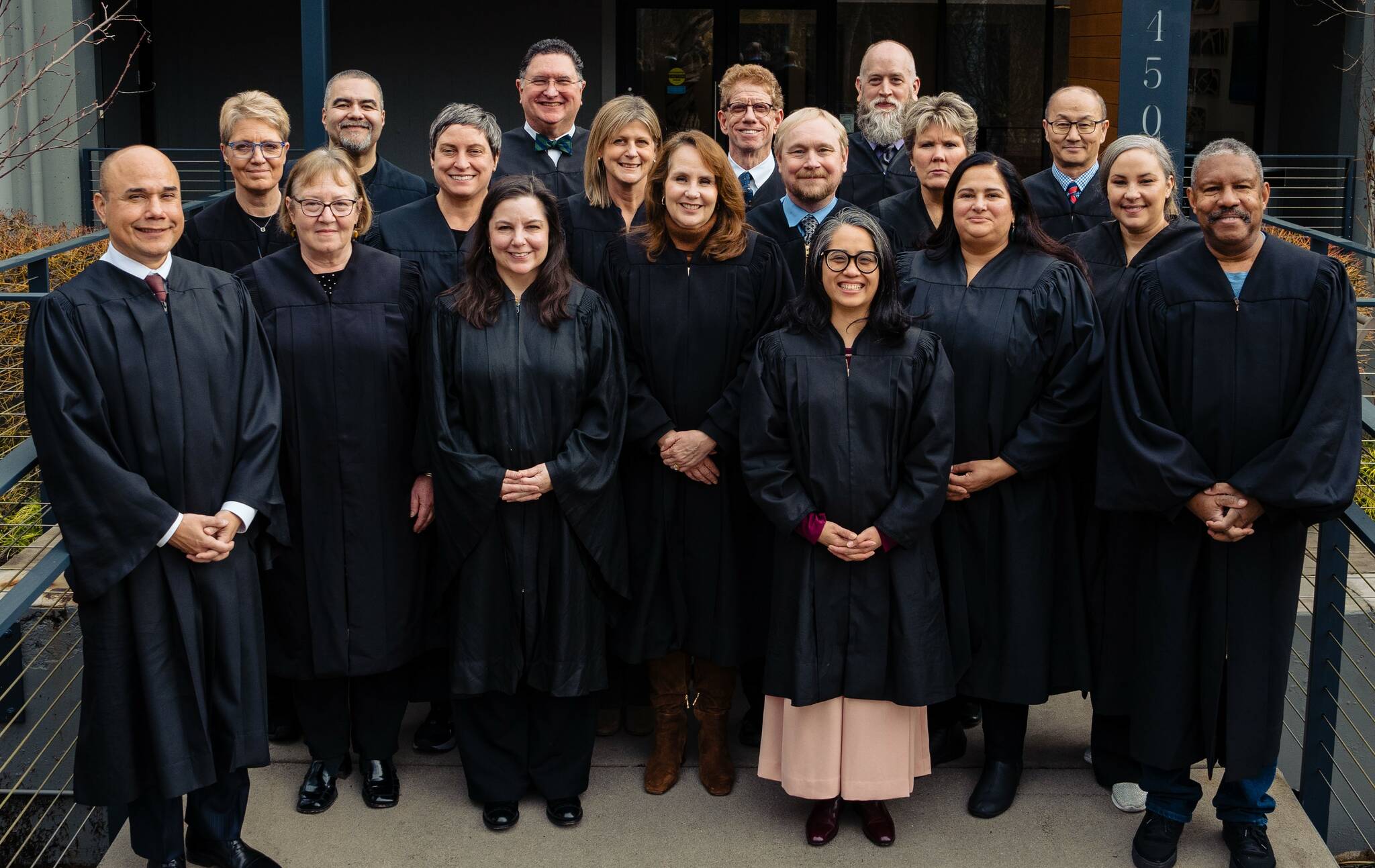Before contracting with King County District Court in 2012, the city of Auburn operated its own court.
Now some members of a key group of court overseers — Auburn’s mayor, police, finance and legal staffs, its public-defense contract-attorney, its chief equity officer and its SCORE jail representative — are said to be unhappy with the way the district court is running things, so they are weighing whether to return to the former system.
To put that more precisely, members of the group, collectively known as the Auburn court’s stakeholders, are taking a fine-grained look at the interlocal agreement (ILA) between the county and city that formalized the King County District Court (KCDC).
All of this is under way as the first timeline of the agreement between Auburn and KCDC approaches. That’s when the agreement mandates that the city examine how it provides court services. The agreement also directs the city to notify KCDC by Feb. 1, 2025, or sooner if it wants to terminate the interlocal agreement and “stand up” its own municipal court, effective Dec. 31, 2026.
Should the city choose to continue with KCDC, the next opportunity to opt out would be Feb. 1, 2029.
Candis Martinson, director of human resources and risk management for Auburn, manages the court. She noted that cities are statutorily responsible for providing for the prosecution, indigent defense, adjudication, sentencing and incarceration of misdemeanor and gross misdemeanor offenses committed by adults within city limits, including traffic and non-traffic misdemeanors.
Judge Rebecca Robertson, presiding judge for King County District Court, said Auburn has twice as many people in jail at any given time by population than do the cities of Kent or Federal Way, which have municipal courts, and the Auburn court files almost twice the number of cases that Federal Way does.
In 2012, Auburn’s leaders fretted that its then-municipal court judge was holding people in jail for too long, denying defendants their constitutionally mandated right to a speedy trial, costing the city and the police department too much money.
So, with cost savings in mind, on Nov. 1, 2012, the city council chose to shelve its municipal court agreement and contract with KCDC to process and adjudicate cases for Auburn, as the county does today for 11 other cities.
In November 2022, the city entered into a contract with the National Center for State Courts (NCSC) to interview Auburn’s stakeholders. It also studied other cities that offer municipal court services — including Puyallup, Federal Way, Renton and Kent — to learn about the potential costs the city would incur for operational changes should it choose to stand up its own court.
That report, presented to the city council in June 2023, found a “disconnect” or “misalignment” between how KCDC and the majority of the stakeholders viewed their relationship. The report likewise discussed some of the areas where the “misalignment of perspectives” had manifested, for example:
That the interlocal agreement’s cost model was allowing Covington’s court to have cases heard in Auburn without paying Auburn any rent for the space. Recently, the city asked Covington to vacate the premises and for it to arrange to have its cases heard elsewhere.
Calendar issues identified by Auburn’s chief prosecutor, among them that the court is running up against speedy trial issues with the city’s public defender and prosecutor. The chief prosecutor partner wants both sides to work together and to devise workable solutions to present to KCDC, showing a unified approach to tackling the calendar concerns.
Robertson acknowledged there there are speedy trial issues in Auburn, but attributed them in part to the backlog stemming from Auburn’s high number of cases and the lack of adequate room to hear them. Robertson discussed the role court rules, and attorneys’ frequent requests for continuances, play in creating those backlogs.
In the end, she said, it’s up to individual judges to grant or deny those requests. She added that KCDC has caught up on Auburn’s COVID-induced backlog.
Expanding Thursday’s community court by facilitating greater police involvement with the people who are committing offenses. But as this would present a staffing challenge for the understaffed police department, talk has now turned to enhancing court security in other ways during business hours.
Corinna Harn, assistant presiding judge for King County District Court, added that if the city went the municipal court route, it would lose its ability to hold protection and anti- harassment order hearings here. Also, a municipal court, unlike district court, would require elections to choose the judges. Only the city of Seattle is required to choose a judge who lives within city limits, but elsewhere in King County, the candidate need only live within the county.
“Election for the those judges actually happens in South King County,” Robertson said, “so voters in other areas, including parts of Renton and Covington and other areas, would also vote for the Auburn judges.”
King County judges, typically two per district court, are chosen from a pool of four to five, and that would no longer be an option with a municipal court.
Costs of setting up a municipal court are only rough estimates at this time. Robertson said that the city would need to spend $30,000 to $40,000 on a document or case management system and the computer equipment needed to stand up a municipal court.



